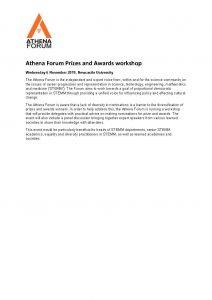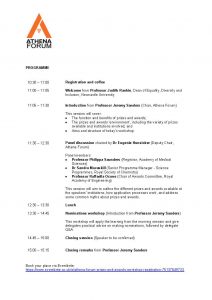30 September 2019, 4pm
MRC Board and Panel Vacancies from April 2020
https://mrc.ukri.org/about/our-structure/research-boards-panels/mrc-board-panel-vacancies/
online application form:
https://mrc.ukri.org/about/our-structure/research-boards-panels/mrc-board-panel-vacancies/apply-for-a-board-or-panel-vacancy/
MRC seeks to fill up to 28 vacancies across 4 Research Boards and 22 vacancies in 5 of their 6 Panels
Please note, Applicants must have both permission and support from their host institution before applying
Personal specification includes:
• ask that applicants have a sound knowledge of experimental design and statistical approaches to ensure the highest standards of methodological rigor
• a first class record in conducting and leading internationally respected research
• a successful track record in applying for and obtaining major grant funding over a number of years
• a proven ability to exercise judgment across a broad spectrum of research and policy issues with a vision of the priorities and opportunities, not only within his/her areas of expertise, but also across the research board or panel portfolio
Aim to:
• steadily increase the number of women (from the current 42% towards 50%)
• broaden the diversity of members
• increase the ratio of mid-career to later-career members
• ensure a strong representation for basic research and data sciences
• have industry representation.
As part of the preparation for their tenure, all new board and panel members are expected to attend an induction meeting on Thursday 6 February 2020 at BEIS Conference Centre, 1 Victoria St, Westminster, London SW1H 0ET. Please hold this date when making an application.
Research Board vacancies
Infections & immunity Board (IIB)
9 vacancies:
The board has particular interest in extending its global health activities, addressing the challenge of antimicrobial resistance, strengthening pandemic preparedness, investigating immunity and infection through the life course, and supporting integrative data analysis and systems approaches.
• Bacteriology / microbiology – with expertise in physiology, pathogenesis or virulence mechanisms.
• Cellular immunology – with expertise in T cells, dendritic cells, macrophage biology or immunotherapy.
• Computational modelling and analysis, and/or use of artificial intelligence – in systems approaches to infections and immunity and/or the development of diagnostics or advanced therapeutics
• Global health – with special interest in vector borne disease, parasitology or tropical infections and experience of working in a Low and Middle-Income Country
• Immune homeostasis – with expertise in one or more of the following areas: regulatory immune mechanisms, microbiome-immune interactions, immune- mediated inflammatory diseases.
• Virology and viral diseases – with a focus on physiology, pathogenesis or virus-host interactions.
• Vaccinology – with expertise in adjuvants, and/or vaccine development.
MRC are particularly interested to hear from applicants who have expertise in molecular biology, biochemistry, structural biology, global health, experimental medicine, data science, drug discovery, clinical trials or translational research of relevance to the Board’s activities. They strongly welcome applications from candidates from the clinical and the industrial sector.
Molecular & Cellular Medicine Board (MCMB)
6 vacancies:
The board has particular interest in understanding dynamic biological systems across scales, the link between external exposures and causal pathways of disease, and radiation oncology and biology
Applications are invited from clinical and non-clinical scientists.
• Mammalian developmental genetics – core expertise in the use of mammalian model systems to explore the genetics and biology of development, ideally including embryology. Broader expertise in transgenics, gene function/regulation, cell biology and signaling, and non-mammalian model systems would be desirable.
• Genomic instability and repair – with core expertise in genome stability, DNA repair and DNA damage signaling. Broad knowledge relevant to cell biology including biology of the nucleus would be desirable.
• Structural biology – core expertise in a broad range of biophysical methods and integrated structural studies approaches; expertise in NMR would be desirable. The appointee should have a track record in structure-function studies. Knowledge of signal transduction, cell biology and structure-based drug discovery would be desirable.
• Industry representative – currently employed within, or strong experience of, the biomedical research industry sector. Knowledge in areas including cell signaling, functional genomics, stratified medicine, target validation/drug development or advanced therapies would be desirable
• Up to two vacancies covering:
o Medical oncology (with preference for clinically qualified/active biomedical researchers)
o Cancer genetics – with broad expertise in the molecular biology of cancer, particularly in areas of cancer cell adhesion/migration, cell cycle control, mechanisms of invasion/metastasis, cellular signaling, and cancer gene predisposition/function/regulation. Experience of experimental medicine, translational cancer studies and an awareness of cancer in a global health context would be desirable.
MRC are particularly interested to receive applications from those with expertise in the use of quantitative analytical tools, and/or multi-dimensional data and systems approaches applied to resolving complex biological problems across scale, space and time.
Neurosciences & Mental Health Board (NMHB)
6 vacancies:
The board has a particular interest in addressing the challenges of mental illness and neurodegenerative diseases as well as exploring what we can learn from the direct study of human brain tissue to gain insight into the function of the human brain.
Applications are invited from clinical and non-clinical scientists.
• Cellular and molecular neurobiology – with expertise in neurodegeneration, synaptic plasticity or behavioural neuroscience.
• Neurodegeneration – with expertise in neuroinflammation and/or translational research.
• Mental health – with expertise in one or more of the areas of : genetics, genomics, clinical psychiatry, experimental medicine and translational approaches.
• Neuro-repair/regeneration – with expertise in clinical neurology.
• Addiction – with expertise in clinical neurology, clinical psychiatry, drug metabolism.
MRC are particularly interested to hear from applicants who have expertise in clinical genetics, modelling approaches, and translational neuroscience. Knowledge of a range of neuroimaging and non-invasive biophysical techniques will be an advantage.
Population & Systems Medicine Board (PSMB)
7 vacancies:
The board has particular interest in understanding multimorbidity and disease clustering, mechanisms of rare diseases to provide insight into more common conditions, and integrated population health with a special emphasis on data integration.
• Clinical cardiology and cardiovascular medicine – with expertise in genetics of cardiovascular disease. Knowledge of imaging techniques, including clinical imaging, would be desirable.
• Musculoskeletal research (two vacancies) – with expertise in muscle, bone and/or cartilage physiology and pathogenesis of osteoarthritis. Broad interest in and knowledge of ageing research (beyond musculoskeletal ageing), resilience and frailty would be desirable.
• Renal medicine – with expertise in mechanisms of disease.
• Inflammation – with expertise in resolution of inflammation and cellular mechanisms of inflammatory disease.
• Epidemiology and population health sciences – with expertise and/or keen interest in enhancing classical epidemiological methods with new approaches to complex/distributed data collection and analysis. A strong background in experimental design would be advantageous.
• Functional genomics – with expertise in large scale genomics and epigenomics. Knowledge of functional metagenomics linked to the role of the human microbiome in chronic conditions (e.g. inflammatory bowel disease, obesity, liver disease and female reproductive system disorders) would be desirable.
MRC are particularly interested to hear from applicants who take multi-modal approaches and integrate and interrogate complex multidimensional data e.g. combining population genomics with cell biology and capitalising on the rich molecular and phenotypic data sets from human and experimental systems. Applicants with expertise in machine learning and computational models that can be evaluated experimentally are strongly encouraged to apply.
Funding Panel vacancies
Developmental Pathway Funding Scheme Panel (DPFS)
8 vacancies:
• Diagnostic development and implementation
• Medicinal chemistry
• Cardiovascular medicine
• Oncology
• Advanced therapies, including antibodies, peptides and cell & gene therapies
• Molecular pharmacology, including pre-clinical toxicology
• Statistics, including early phase clinical trial and pre-clinical
• Infectious diseases and global health
Applications from clinically active researchers, researchers based in industry and those with knowledge of the relevant investment landscape would be particularly welcomed. Given the breadth of applications received by the scheme, panel members are required to cover a broad portfolio and individual applicants would ideally be able to cover multiple areas.
MRC-NIHR Methodology Research Programme Panel (MRP)
5 vacancies:
MRC seeks applications from experienced researchers with a broad scientific, and a very strong methodological background. To ensure regional and sectoral representation, researchers based outside of London or from industry are particularly encouraged.
• Clinical Informatics; health systems, services and delivery; computer- or data-science skills for health
• Causal modelling and inference; observational studies; triangulation
• Biostatistics; genetic epidemiology; computational statistics; meta-analytical models
• Co-membership with PSMB (see Board vacancies)
• Co-membership with MCMB (see Board vacancies).
Co-membership ensures that advances and challenges from research methodology are embedded across MRC funding decisions and strategy. Where appropriate, applicants applying to the vacancies within other Boards and Panels should indicate their availability for dual membership with MRP.
Training and Career Development Panels
Non-Clinical Training and Career Development Panel
Up to 5 vacancies.
Panel members contribute to assessments and interviews across the full range of MRC’s work, and this year they would particularly welcome applications from researchers who would bring core expertise in:
• Cell biology and cancer/ cell and structural biology
• Population scale biomedical research / genetic epidemiology
• Public health and prevention
• Imaging / microscopy technology or applications
Candidates with clinical expertise would be particularly welcome.
Clinical Training and Career Development Panel
Up to 4 vacancies.
Panel members contribute to assessments and interviews across the full range of MRC’s work, and this year MRC would particularly welcome applications from researchers who would bring core expertise in:
• Endocrinology and metabolic medicine
• Stem cell biology
• Oncology
• Data science and artificial intelligence


